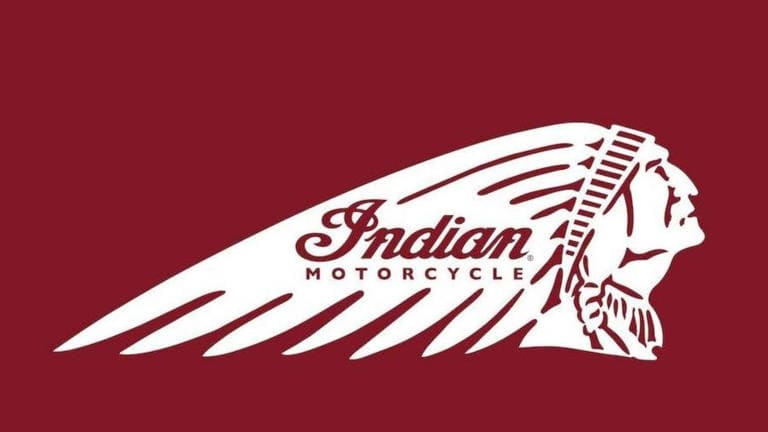
by Steven Symes from https://www.msn.com/
Should they bow to the pressure?
Whether you love or hate Indian Motorcycle, it’s likely you have an opinion about the brand’s name and logo. Actually, a lot of people who’ve never ridden a motorcycle in their life have hot takes on what should be done with Indian Motorcycle. It’s a topic which was dealt with back in the 90s before anyone had even heard of cancel culture, but that’s how long these types of sentiments have existed in society.
For now this issue has sat on the backburner, relegated to smaller media outlets and not the big corporate broadcasters and newspapers. That could change in a flash as we’ve seen a thing not previously in the spotlight suddenly become public enemy number one. Some argue Indian Motorcycle is profiting off the name and imagery of indigenous people, which they say is exactly like when different tribes were forcibly kicked off their land by white settlers. That’s a huge logical leap, but it’s the argument being levied with a lot of emotion mixed in so you don’t pay too much attention to the lack of logic or the fact some Native Americans don’t agree with the sentiment.
As mentioned before, there’s some turbulent history with the Indian Motorcycle brand, most notably a lawsuit in the 1990s after a deal to have a Native American tribe make the bikes fell apart. It’s a complicated legal case, but there was understandably a lot of bad blood from that deal gone sour.
More recently, a few voices in the motorcycle world have decided the time is now for Indian to change its name and logo. I’ll let them explain in their own words.
Canada MotoGuide ran an op-ed in March of this year where the author states, “As the world becomes more PC-friendly, I do think that the name and branding will do more harm than good, ultimately having a negative impact on sales in the future. I certainly don’t want to see the company fail, nor do I wish anything but the best for those who make their living and support their families working for the company. I merely think that supporting and perpetuating a certain pattern of cultural appropriation is best left in the past.”
New Zealand motorcycle publication On Throttle ran a similar piece about this topic also in March, the author stating he didn’t want to attack the oldest motorcycle brand in America. However, he argued “while the company is not outwardly racist, there are problems with the brand that have not been addressed in regards to the cultural appropriation”
More thoughtful dialog can be found on a 4-year-old Reddit post where the author asks if the name and logo for Indian Motorcycle is offensive. The top answer was succinct: “I have never owned one but do not feel anything negative about it. I used to run Native Net, 67 reservations, where we discussed problem areas and this was never brought up by any of the Native nations.” Another user pointed out that sometimes perceptions are off due to a lack of understanding, like how people think the gunmaker Savage Arms is racist because of the name combined with an Indian’s head in the logo. In that case, the founder’s last name was Savage and he traded with a chief who gave his permission to use his likeness, likely because he found it to be an honor and not mockery.
Nothing from the history of Indian Motorcycle suggests a connection between the founders of the company and any Native American group. However, it seems they used names like Chief, Scout, and Chieftain to convey strength, not as mockery. Some take the usages as just the opposite.
I grew up in a state where there were a lot of Native Americans. I had friends who were from different tribes or pueblos and others who were part Native American. I also attended college with many Native Americans and discussed cultural topics with some. I live right next to two reservations and have lived around Native Americans my entire life. From my own life experience, the one thing I can say with 100 percent certainty is that if anyone is trying to tell you all Native Americans feel or think a certain thing, they’re not being honest. Some hate things like Indian Motorcycles. Others think they’re cool and are proud owners of an Indian, others that they’re silly, and some have no opinion on the topic. In other words, trying to argue that the brand name and logo offends all Native Americans is simply untrue.
For Polaris’ and Indian Motorcycle’s part, they seem to be sensitive to the potential controversy. While they continue to use legacy names, no new model names have even a hint of indigenous roots. They haven’t added any extra Indian-themed imagery to the motorcycles and you won’t find anything like that in dealerships, or at least that’s the direction the dealers have been given by Indian Motorcycles.
There are plenty of reasons to not like Indian Motorcycle. Some have an issue with the parent company, Polaris. Others aren’t a fan of the bike designs or they don’t like how they ride. I know people who really hate the quality or reliability of Indians. But for now it seems like the effort to build pressure to cancel the brand name and logo isn’t exactly catching on in the motorcycle world and it may never.
